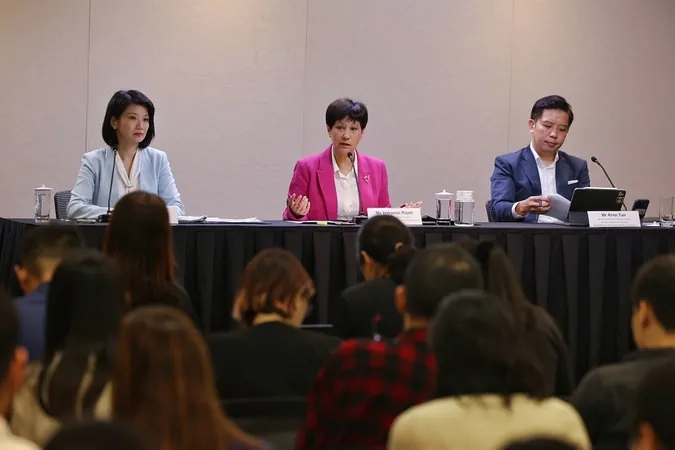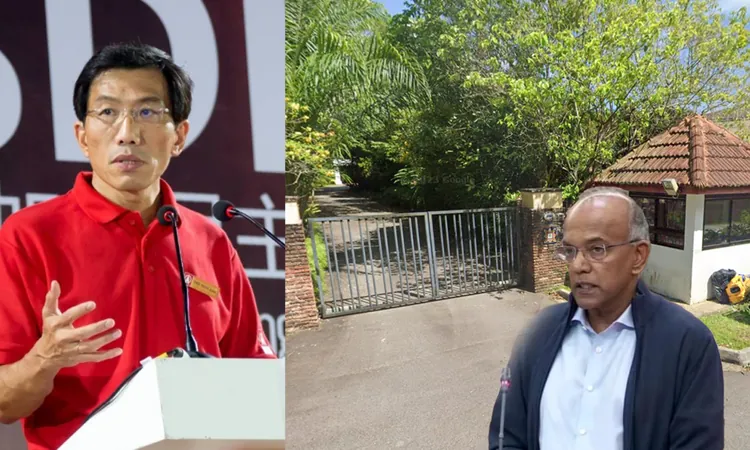
Unveiling New Anti-Money Laundering Measures for Luxury Goods Dealers in Singapore
2024-10-04
SINGAPORE – New Guidelines for Luxury Goods Dealers
In a robust move to prevent crime syndicates from exploiting Singapore’s financial ecosystem, the government has announced new guidelines aimed at dealers of high-value goods. These unregulated sectors, including luxury item retailers and car dealers, will receive targeted advice on how to identify and report suspicious transactions that may involve money laundering.
This initiative was unveiled on October 4, following a sweeping report by the Inter-Ministerial Committee (IMC) on Anti-Money Laundering. With Singapore consistently striving to maintain its reputation as a secure business hub, the IMC’s efforts are designed to strike the right balance—fostering economic growth while keeping illicit activities at bay.
Minister Indranee Rajah, who leads the committee, emphasized that Singapore welcomes legitimate investments but is firmly opposed to illegal funds. “We will be hostile ground for illegal funds and criminal activities should they find their way to our shores,” she stated, reinforcing the country’s commitment to a transparent financial system.
Background of the Initiative
The formation of the IMC was spurred by Singapore’s largest money laundering case in August 2023, which saw authorities seizing over $3 billion worth of properties and assets. Ten foreign nationals, including a mix of men and women from China, were imprisoned, and nearly $940 million of their assets was forfeited. These incidents underscore the urgent need for enhanced vigilance across various sectors.
Educational Measures for Businesses
In a bid to prevent the entry of illicit funds, the IMC aims to educate unregulated businesses on practices such as refusing large cash transactions, which can often mask suspicious activities. Minister Rajah highlighted that while traditional indicators, such as high-ticket luxury items, are recognized, criminals are becoming adept at shifting their methods, leading them to invest in collectibles, art, and even designer handbags—all of which can be used to launder money.
“Bearbrick ornaments, which were previously unconsidered by regulatory bodies, are now associated with money laundering,” Rajah noted. The determination to educate businesses does not mean a comprehensive list of at-risk items can be established; rather, the focus will be on fostering ongoing adaptability in detecting fraudulent activities.
Enhanced Coordination and Information Sharing
The IMC is also focusing on enhancing coordination and information sharing among various government entities. A state-of-the-art tool, the National AML Verification Interface for Government Agencies Threat Evaluation (Navigate), is poised to be launched in the coming years. This platform will facilitate quick screening across agencies to identify suspicious behaviors more effectively.
Strengthening the Regulatory Framework
Moreover, following recent gaps highlighted in the current anti-money laundering practices, Singapore is poised to strengthen its regulatory framework. The introduction of the Collaborative Sharing of Money Laundering/Terrorism Financing Information and Cases (Cosmic) allows banks to share suspicious transaction alerts while preserving the confidentiality of legitimate customers.
The recently passed Anti-Money Laundering and Other Matters Bill enables government agencies, including the Inland Revenue Authority and Singapore Customs, to enhance data sharing, streamlining investigative processes and ensuring a more united front against financial crime.
Conclusion
Through these measures, Singapore is making it clear: it is not only a haven for businesses but also a fortress against those who attempt to exploit its financial structures for nefarious purposes. As the global landscape of money laundering evolves, Singapore’s commitment to stay one step ahead serves as a reminder that vigilance and adaptability are essential in protecting its economic integrity.




 Brasil (PT)
Brasil (PT)
 Canada (EN)
Canada (EN)
 Chile (ES)
Chile (ES)
 España (ES)
España (ES)
 France (FR)
France (FR)
 Hong Kong (EN)
Hong Kong (EN)
 Italia (IT)
Italia (IT)
 日本 (JA)
日本 (JA)
 Magyarország (HU)
Magyarország (HU)
 Norge (NO)
Norge (NO)
 Polska (PL)
Polska (PL)
 Schweiz (DE)
Schweiz (DE)
 Singapore (EN)
Singapore (EN)
 Sverige (SV)
Sverige (SV)
 Suomi (FI)
Suomi (FI)
 Türkiye (TR)
Türkiye (TR)